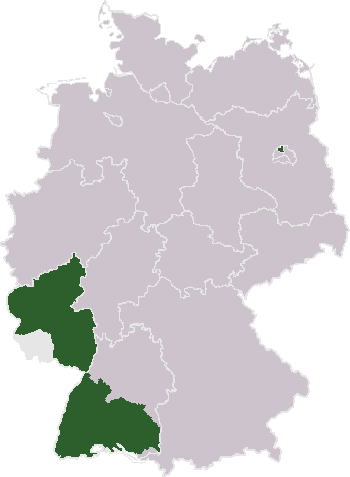
French Zone of Germany
Of the four powers that occupied a piece of Germany after World War 2, France was the smallest and poorest, especially compared to the United States. Information about the French occupation zone is a bit harder to come by (my french is rusty, but I’m working on it!), so I’m always happy to find interesting bits in English or German.
Here’s a chapter in English from a book on public health in the French Zone. Despite the title, this isn’t just about health issues. The chapter gives some good insights into the general attitude of the French towards Germany, and the Germans toward the French.
It wasn’t an easy relationship. The French were not going to quickly forget being invaded by the Germans in 1940 — and 1914 — and 1870. Many French believed German nationalism was a unique curse over Europe. This was true at the time, though not unusual for other European countries in other eras. France had its own nationalist and expansionist past when Napolean invaded countries across Europe 145 years before.
Regardless, postwar France saw Germany as a country to be reformed root and branch, even if it meant permanently breaking up the country and shifting its center of power from military-dominated Prussia (Berlin) to Germany’s south-west (the future capital for decades would be Bonn, not coincidentally in western Germany and not so far from the French border).
The French flag flew from the Victory Column in postwar Berlin, a pretty obvious signal to the Germans. French pride made many French treat the Germans in their zone with the same disdain and outright racism as they did native populations in French colonies. Level heads in the French military and government were alarmed by this. They quickly saw how bad relations between occupier and occupied could destabilize a Europe that desperately needed to stay at peace. With the strong USSR as a threat, Germany needed to be rehabilitated. That wouldn’t happen unless relations were normalized. The Germans — also a proud people — had to be treated better or they would continue to be a long term problem. The fate of Germany was tied to the fate of Europe as a whole.
And so the fraternization rules were relaxed, allowing French and Germans to socialize and even live together under some conditions. Franco-German marriages increased. Since France couldn’t offer its zone material goods like the US could, it threw itself into showing the Germans how much it cared about culture, the arts and sciences — something the French and Germans had in common. As early as 1946, Bastille Day was a 3-day bash in Berlin complete with regattas and fireworks.
Here’s a very interesting look at the French Sector in Berlin. (in German)
